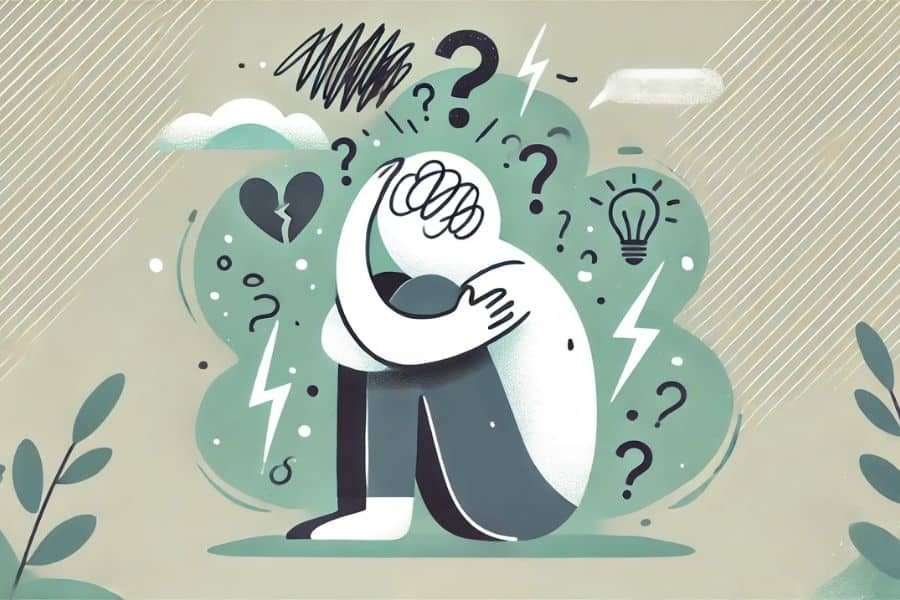Understanding Anxiety Medications
Figuring out the right anxiety medication can be a game-changer in keeping stress levels in check. There’s quite a mix of meds that do the trick, each doing its own thing with its own set of upsides and hiccups.
Types of Anxiety Medications
There’s a wide array of meds that tackle anxiety head-on. Here’s the lowdown:
-
Selective Serotonin Reuptake Inhibitors (SSRIs): These are like the go-to choice for kicking anxiety to the curb. They take their sweet time—about 2-6 weeks—but they aren’t habit-forming. SSRIs boost the happy juice—serotonin—in your noggin.
-
Serotonin-Norepinephrine Reuptake Inhibitors (SNRIs): Another top pick, though not the best match for OCD. They’re all about bumping up serotonin and norepinephrine (Medical News Today).
-
Tricyclic Antidepressants (TCAs): If you’ve struck out with other meds, these might be your ace in the hole. They work by stopping serotonin and norepinephrine from checking out too soon (Medical News Today).
-
Benzodiazepines: Fast-acting, but they can reel you in with dependence. Docs often lean toward SSRIs to avoid this sticky situation.
If you’re still curious about the med scene, take a gander at our big book of prescription drugs for anxiety.
Common Side Effects
No med is all sunshine and rainbows—each comes with its own baggage. Here’s what you might bump into with these medications:
| Medication Type | Common Side Effects |
|---|---|
| SSRIs | Stomach upset, packing on pounds, sleepless nights, bedroom issues, cottonmouth, wooziness |
| SNRIs | Nausea, dry mouth, spinning room, sweat storms, feeling drained, romance roadblocks |
| TCAs | Extra weight, sluggish bowels, dry mouth, blurry world, dizzy spells |
| Benzodiazepines | Sleepiness, dizziness, mental fog, dependence warnings, memory fog |
Source: Mayo Clinic
Knowing what lies ahead can save you some headaches. Always give your doc a shout-out if things go sideways with side effects. Want more advice on dodging these curveballs? Peek at our piece on addressing adverse reactions.
If pills aren’t your thing, or you’re looking for some natural relief, why not try our pages on natural remedies for anxiety, alternative treatments for anxiety, or cognitive behavioral therapy for anxiety? They might just sprinkle some calm into your life plan.
First-Line Medications for Anxiety
Trying to figure out how to tackle anxiety can feel like solving a jigsaw puzzle in the dark. Thankfully, there are a few trusty medications doctors often start with to brighten things up. These options include SSRIs, SNRIs, TCAs, and good ol’ Benzos. Knowing what you’re dealing with, side effects and all, could help you decide what’s best for you.
SSRIs for Anxiety
So, you’ve probably heard of SSRIs, right? They’re like the go-to for people wrestling with general anxiety. These meds do their magic by keeping the serotonin—the stuff that affects your mood—going wild in your brain. More serotonin means less anxiety!
| SSRI Medication | Common Side Effects |
|---|---|
| Fluoxetine | Nausea, headaches, insomnia |
| Sertraline | Diarrhea, dizziness, dry mouth |
| Escitalopram | Fatigue, increased sweating, weight gain |
Folks usually hang out with SSRIs for about 6-12 months. They’re kind of the chill pill you want around. Want to know more? Check out prescription drugs for anxiety.
SNRIs for Anxiety
SNRIs are like SSRIs’ cooler cousin. They also help get rid of anxiety by messing with norepinephrine too (Medical News Today). Together with serotonin, these neurotransmitters play nice to help get your mood back on track.
| SNRI Medication | Common Side Effects |
|---|---|
| Venlafaxine | Sweating, dry mouth, loss of appetite |
| Duloxetine | Nausea, insomnia, dizziness |
| Desvenlafaxine | Constipation, drowsiness, sexual dysfunction |
Craving more knowledge on this? Pop into alternative treatments for anxiety when you get a chance.
TCAs for Anxiety
TCAs have been hanging around for ages, helping people with both the blues and the jitters. They work like SSRIs, just a bit more old school. Docs might avoid these because the side effects aren’t all that fun.
| TCA Medication | Common Side Effects |
|---|---|
| Amitriptyline | Dry mouth, weight gain, blurred vision |
| Nortriptyline | Constipation, dizziness, sensitivity to sunlight |
| Imipramine | Sweating, sexual dysfunction, fatigue |
For a lowdown on these options, visit medication for anxiety.
Benzodiazepines for Anxiety
Then we’ve got Benzos. They’re kinda the tough guys in the group. Not first in line, though, ’cause they can get you a bit hooked (Medical News Today). Benzos give GABA—a neurotransmitter that chills your brain—a boost.
| Benzodiazepine Medication | Common Side Effects |
|---|---|
| Alprazolam | Drowsiness, dizziness, dependency |
| Lorazepam | Fatigue, confusion, nausea |
| Diazepam | Muscle weakness, memory problems, respiratory issues |
These guys are usually your short-term pals. Curious? Have a peek at natural remedies for anxiety or herbal supplements for anxiety.
Each of these meds brings something to the table, but they come with their own challenges too. Always chat with your healthcare provider to pick what’s right for you. For more ways to roll with side effects, look at cognitive behavioral therapy for anxiety and relaxation techniques for anxiety.
Managing Anxiety Medication Side Effects
Wrangling those pesky side effects that tag along with your anxiety meds? It’s all part of steering your treatment in the right direction. We’re talking about feeling queasy, battling sleepless nights, or wrestling with bigger complications like weight changes and heart hiccups (Mayo Clinic). Here’s where you get the lowdown on teaming up with your doc and tackling those unwanted reactions head-on.
Consulting Healthcare Providers
Got side effects making a fuss? Chatting with your doctor is your go-to move. Whether the side effects are giving you a run for your money or just annoying little nags, your healthcare expert’s got the know-how to guide you through. Important tip: Don’t pull the plug on your meds or mess with doses on your own—serious business like this calls for a professional nod.
When you sit down with your provider, think about raising these points:
- Current Side Effects: Jot down what you’re feeling, how bad it is, and how often it’s popping up.
- Medication Adjustments: See if tweaking the dosage or swapping medicines might do you some good.
- Duration of Side Effects: Ask how long your body’s likely to keep up the side effect shenanigans.
- Supportive Treatments: Explore options like cognitive behavioral therapy or natural remedies for anxiety.
Keeping that line of talk open with your doc helps shape a treatment plan that does the job without too much grief.
Addressing Adverse Reactions
Nipping adverse reactions in the bud makes the treatment journey a whole lot smoother. Standard SSRI and SNRI side effects might have you dealing with nausea, head-pounding, sweaty palms, dry mouth, tummy troubles, and sleep issues. Here’s your game plan:
- Nausea: Consider taking your meds with food or switch up the time you gulp them down.
- Insomnia: Set a bedtime schedule, dodge caffeine, and play around with calming techniques like meditation for anxiety.
- Dry Mouth: Keep water nearby, reach for sugar-free gum or lozenges, and steer clear of booze.
- Digestive Issues: Pack more fiber into your meals and keep moving with some exercise.
Common Side Effects and Strategies
| Side Effect | Strategy |
|---|---|
| Nausea | Pair with food, adjust dosing schedule |
| Insomnia | Stick to sleep habits, cut back on caffeine |
| Dry Mouth | Stay hydrated, chew sugar-free gum |
| Digestive Issues | Boost fiber intake, keep active |
If any side effects throw a major tantrum—like feeling super agitated or having thoughts that take a dark turn—hit the brakes and get medical help, pronto. Folks with added risk factors, like our seasoned seniors, should take special care to dodge potential med mishaps. Keep looping your healthcare provider in on any symptom switch-ups or side effect quirks you encounter.
Grasping the numbers-related stuff on potential side effects helps in lining up what’s to be expected. Well-curated patient info pamphlets, especially when spelled out in numbers, tweak your headspace about those side-effect surprises for the better (PMC). This savvy angle helps mellow out the jitters tied to medication.
By being clued-up and on your toes with side effect management, you’re playing the balancing act between the perks of medication for anxiety and the hurdles they can toss your way. For more tricks up your sleeve, give alternative treatments for anxiety or relaxation techniques a peek.
Special Considerations for Anxiety Treatment
When you’re dealing with medication for anxiety, it’s super important to consider a few unique factors that might sway how well things work out. Here, we chat about specific concerns when it comes to older folks and the scary thought of suicidal tendencies in younger people.
Elderly and Medication Risks
Older adults, they’ve got their own set of hurdles when it comes to anxiety meds, especially antidepressants like SSRIs. One big worry is a condition called hyponatremia – basically, it’s when your sodium levels dip too low. This sneaky problem can lead to a fluid build-up in your cells, and you might start showing symptoms similar to depression or even side effects from the meds themselves. Serious cases of low sodium can be life-threatening, with complications that might include respiratory arrest or coma.
| Risk | Potential Impact |
|---|---|
| Hyponatraemia | Symptoms like depression, fluid build-up, respiratory arrest |
To dodge these risks, crank up those regular check-ups with your doctor to keep sodium levels and overall health in check. Have a good ol’ chat about any weird symptoms or side effects with your doc to make sure you’re on a treatment plan that’s both safe and does the trick.
Find out more on safely handling prescription drugs for anxiety.
Suicidal Thoughts and Antidepressants
Antidepressants, while meant to help with anxiety, have some hefty warnings tagged along, especially for the under-25 crowd. Occasionally, starting or tweaking doses of these meds might stir up suicidal thoughts or self-harm desires. Getting medical help quick as a flash if such thoughts creep in is seriously vital (NHS).
| Age Group | Risk |
|---|---|
| Under 25 | Suicidal thoughts, self-harm urges |
It could be worth giving a heads-up to a friend or family member when you get set on antidepressants. This way, they’ve got their eyes peeled for any downward spiral or changes in behavior. Keeping the lines open with your healthcare provider is a big deal to stay safe while managing those pesky anxiety side effects.
For other tactics, check out cognitive behavioral therapy for anxiety or take a peek at natural remedies for anxiety.
Tackling these special considerations ensures your treatment plan is not only safe but effective – freeing you up to focus on managing anxiety in a healthy way.
Gender Differences in Anxiety
Anxiety Tends to Favor Women
You might notice that life can feel a bit more anxious if you’re a woman. Research says women are about 1.7 times likelier to get hit with an anxiety disorder compared to men, with a 1.79 times higher risk over a year’s span (PMC). Yeah, unfortunately, it’s not just your imagination.
| Gender | Lifetime Odds | 12-Month Odds |
|---|---|---|
| Women | 1:1.7 | 1:1.79 |
| Men | 1:1.0 | 1:1.0 |
When anxiety comes knocking, it often brings friends like major depressive disorder and bulimia nervosa. This double whammy means anxiety’s grip on women is broader than just nerves; it’s more of an all-access pass to a mental health rollercoaster.
Health Takes a Hit
Anxiety doesn’t just pick favorites; it hits women pretty hard. And not just in the mind. For European American and Hispanic women, anxiety sticks its nose into everyday life like that annoying relative who won’t get the hint to leave (PMC).
Women dealing with anxiety are regulars at emergency rooms, quick care spots, and their doctor’s office, way more than women less acquainted with anxiety. They’re also marked absent at work more often, which piles onto the personal and financial stress.
| Health Effect | Non-Anxious Women | Women with Anxiety |
|---|---|---|
| ER Visits | Fewer | More |
| Doctor Appointments | Fewer | More |
| Missed Work Days | Less | More |
So, what’s a woman to do? You have options. You might go the medication route, check out natural fixes for anxiety, or give cognitive behavioral therapy a whirl. There’s no one-size-fits-all here, and solutions are as diverse as the women experiencing anxiety.
For those not into the “usual,” there are other paths worth exploring, like dabbling in vitamins and herbs as allies in the fight.
Figuring out why anxiety seems to shadow women more closely—and learning how to deal with it—is a team effort between folks facing anxiety and the pros trying to help. Whether it’s talking to your doc or exploring new treatments, addressing these anxiety issues together can bring some much-needed relief.
Coping with Anxiety Disorder
Keeping anxiety at bay isn’t just about popping pills; it’s about finding the right mix of methods to boost your peace of mind. By mixing things up a little and adding various tools to your kit, you might find the uphill struggle with anxiety isn’t so rocky after all.
Cognitive Behavioral Therapy
Say hello to your anxiety-busting buddy: Cognitive Behavioral Therapy (CBT). This isn’t just any therapy; it’s like having a personal trainer for your thoughts. CBT helps you spot and boot out those pesky negative thoughts and behaviors that stir up anxiety. When you buddy up with a therapist, you might find yourself:
- Spotting and disputing thoughts that have no real ground
- Shifting gears to healthier ways of thinking
- Learning cool tricks to manage those pesky pangs of stress and anxiety
Folks often sing praises for CBT, especially when it’s paired with some anxiety-busting meds to form a dream team in fighting anxiety.
Lifestyle Changes
Making a few tweaks in your day-to-day life can be a game-changer when it comes to squashing anxiety. These little shifts can make your meds and therapeutic efforts work that much harder for you:
Get Moving: Break a sweat, stay fit, and let those feel-good endorphins lift your spirits.
Eat Right: Munch on fruits, veggies, and whole grains to keep your mood steady as a rock.
Catch Some Z’s: Good sleep is gold for your mental game.
Chill Out: Try chilling with meditation or deep-breathing shenanigans to keep anxiety on a leash. Peek at our tips on relaxation techniques for anxiety.
Addressing Side-Effect Expectations
Knowing the ins and outs of anxiety meds can keep you on the straight and narrow. The SSRIs and SNRIs aren’t without their sidekicks – side effects, that is – like nausea, headaches, and some sleep issues. These usually mellow out in a few weeks (NHS).
Sticking to your med schedule may be tricky if side effects bother you (PMC). Watch out – it’s easy to confuse genuine side effects with ones cooked up by nocebo effects.
| Common Side Effects | SSRIs/SNRIs (%) |
|---|---|
| Nausea | 25 |
| Headaches | 20 |
| Dry Mouth | 15 |
| Sleep Disturbances | 18 |
| Sweating | 13 |
Don’t bottle it up—chatting with your doc about any worries or side effects is the way to go. They might tinker with your meds or find something that suits you better. For more on this, head over to our part on alternative treatments for anxiety.
Mix and match these tricks to pave your path to keeping anxiety on its toes, ensuring that your battle plan is solid and sticks around for the long haul.










